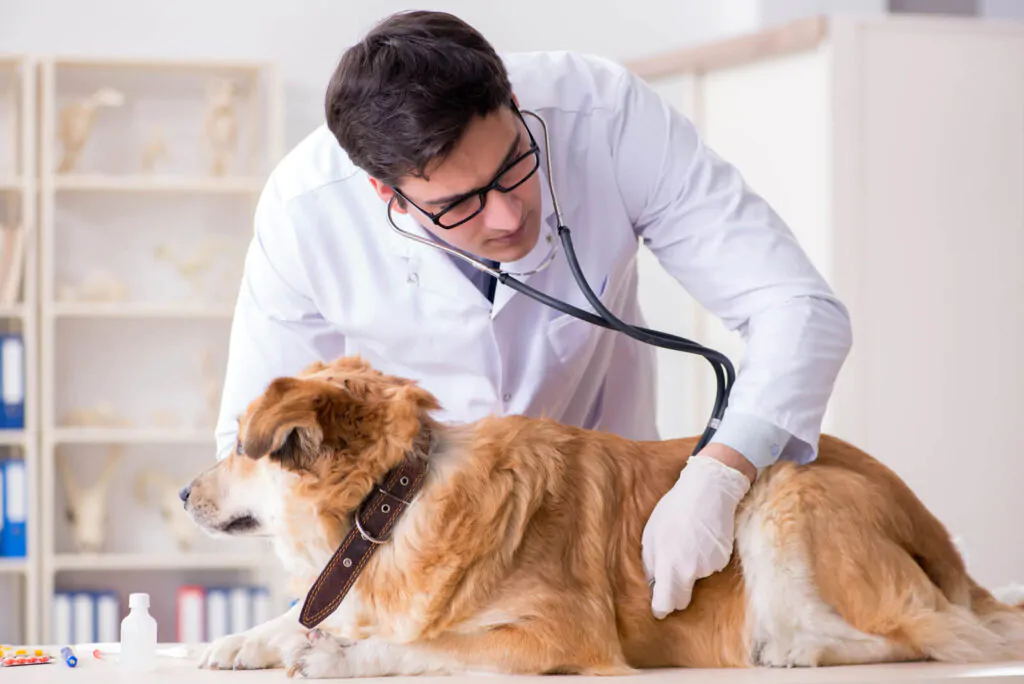Are you wondering why tea is bad for dogs? Here are the top reasons you should keep tea away from your pet.

When waiting for the kettle to whistle to prepare your favorite morning fix, it can be tempting to give your dogs some. While a lap or two doesn’t do much harm to your dogs, a lot of tea can lead to severe illness or even be fatal.
Caffeine can be poisonous to dogs if they consume an exceeding amount of tea. But caffeine is not the only factor. Lactose intolerance, tannins, liver toxicity, and thermal burns are some other reasons that threaten your fluffy friend’s life.
- 1. Animals Are More Sensitive To Caffeine
- 2. The Caffeine In Tea Causes Severe Illness For Dogs
- 3. The Tannins Lead To Liver Toxicity
- 4. Dogs Can Be Lactose Intolerant
- 5. The Sugar Is Harmful
- 6. Tea Can Cause Bladder Issues
- 7. Tea Bag Consumption Causes Bowel Obstruction
- 8. It’s Life-Threatening If They Can’t Get A Prompt Medical Treatment
1. Animals Are More Sensitive To Caffeine
Do you know that only one to two caffeine pills can cause death in most dogs and cats? Any caffeinated drink is likely to cause fatality if your dogs ingest more than nine milligrams per pound of body weight. The worst cases happen when dogs consume 18 milligrams of caffeine per pound of body weight.
However, if your dog consumes one to two laps of tea by accident, such a small amount of caffeine is not enough to cause poisoning.
You might also find our explainer on can dogs have coffee ice cream useful.
2. The Caffeine In Tea Causes Severe Illness For Dogs
So why is caffeine poisonous for dogs? Tea results in caffeine toxicity with common symptoms such as vomiting, diarrhea, tremors, elevated blood pressure, and heart arrhythmia.

Other than that, if your dogs show excessive thirst, urination, or seizures, take them to the vet or call a pet poison hotline immediately. If you plan to include some tea in your dogs’ diets, make sure it’s herbal or caffeine-free, but always double-check the type of tea first to ensure it’s safe for dogs.
3. The Tannins Lead To Liver Toxicity
Some tea with the highest concentration of tannins, such as black tea, promote antioxidants and antibacterial effects that the human body prefers. However, it doesn’t go the same way for dogs.
The tannins are anti-nutritional and deter your dogs from achieving balanced growth. Consuming a large volume of tannins is linked to liver toxicity; symptoms include vomiting and diarrhea.
4. Dogs Can Be Lactose Intolerant
Not all dogs are completely lactose intolerant. However, some dogs are sensitive to dairy. Drinking tea with milk is a common habit for humans, but the amount of milk or cream in your favorite drink can cause upset stomachs in dogs.
5. The Sugar Is Harmful
Do you put sugar or sweeteners in your tea? Overconsumption of sugar is unsafe for your dogs as it may cause weight gain and obesity. Dogs can even get addicted to sugar.
Along with sugar, other sweetener alternatives also propose risks, especially if they contain xylitol.
6. Tea Can Cause Bladder Issues
While green tea may facilitate weight loss in humans, it is linked to liver damage in the dog if consumed in large quantities. Even if you plan to give your dogs a tiny bit of tea on a daily basis, it may build up calcium oxalate crystals in their bladder.
Eventually, this will become a serious issue that prevents your dogs from growing well.

7. Tea Bag Consumption Causes Bowel Obstruction
If your dog swallows a tea bag, it will cause blockages in the stomach or intestines, especially in a small dog. If you cannot identify the abnormalities in their behaviors, such as twitching, trembling, or shaking in time, it will lead to serious illness and even death.
Repetitive vomiting, weakness, and loss of appetite are some of the most common symptoms of bowel obstruction. It’s more likely to be an accident when you unintentionally leave your tea bags unattended after use.
Other than bowel obstruction, thermal burns in the mouth can annoy your dogs.
8. It’s Life-Threatening If They Can’t Get A Prompt Medical Treatment
Adverse reactions to tea toxicity can be treated if you take action in time. Once the treatment is over, there should be no long-term effects to be worried about. The key takeaway here is to get prompt medical treatment to avoid an unwanted situation, especially when the effects of high doses of caffeine on the heart or brain lead to fatality.
